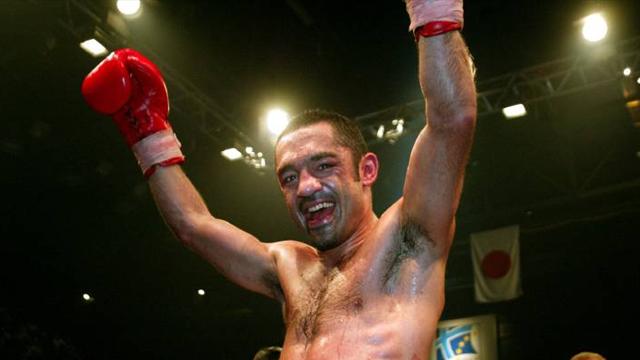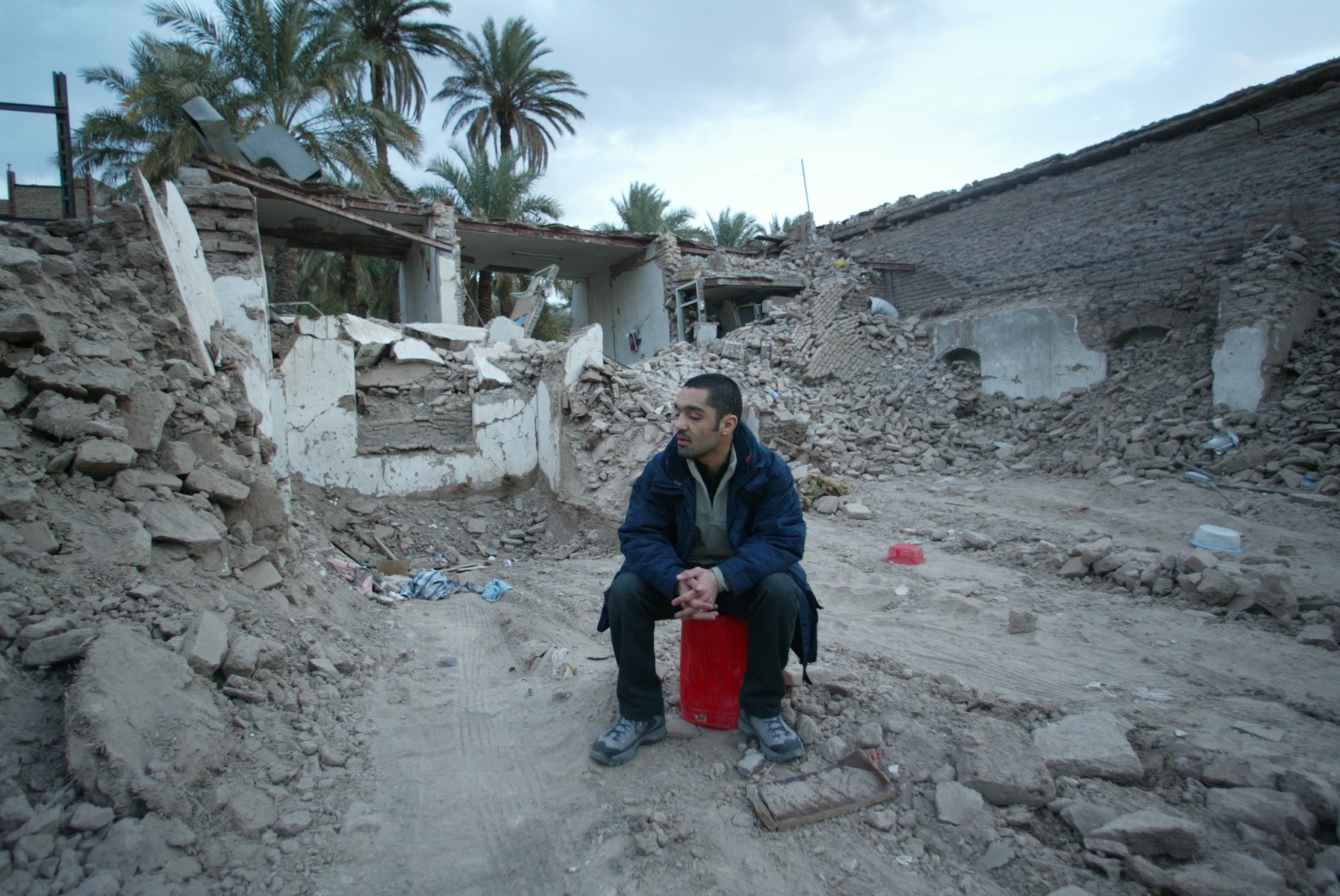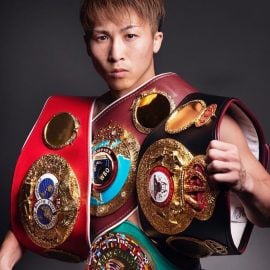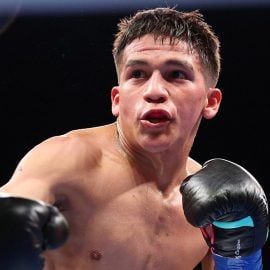Best I Faced: Mahyar Monshipour

Hard-charging pressure-fighter Mahyar Monshipour rose from obscurity to become the WBA junior featherweight titleholder during the early-mid 2000s.
Monshipour was born in Tehran, Iran, the only child of a police officer and salon worker on March 21, 1975. His early years were particularly fraught.
“[My parents] separated when I wasn’t even a year old,” Monshipour told The Ring. “My mother remarried. As soon as the marriage was celebrated, he asked her to separate from me. He burned the sole of my foot with a cigarette in three places.
“To maintain her standard of living, she gave me back to my father. He dropped me off with his father in Kerman (in Iran). My grandfather asked his only daughter, Ashraf, to take care of me like a mom, when I was only one-and-a-half years old.”
By the time he was six, his father had remarried and had a second son. However, the marriage didn’t last and Mahyar didn’t see much of his younger sibling.
The Iran-Iraq war was at its peak in the mid-1980s and his father decided that he needed to send him overseas for protection.
“His sister, Mahnaz, was in France in Poitiers and was happy to take care of me,” Monshipour explained. “I got a study visa at the age of 10 – something exceptional. I flew on August 15, 1986 with only a few clothes and a bed blanket.
“There were 15 days left between my arrival and the start of school. I didn’t know how to speak a word of French. I then embarked on a nine-month race against time that allowed me, according to my French teacher, Madame Bernollas, to pretty much master the beautiful French language.”
Monshipour was a good student and initially had aspirations of becoming a doctor. However, he soon discovered sport, playing basketball, handball and he was also a good runner.
“I became a little star at school,” he said. “I then understood the power of sport.”
Despite the attention, Monshipour was an introverted child. He had been beaten by his father in his early years and this had a residual effect on him. It took time for boxing to come to the fore.
“Studying was the only reason for my presence in France. I couldn’t walk through the door of a boxing club,” he explained. “At first, I trained in the living room of my high school sports teacher’s apartment, before he told me, ‘Mahyar, we’re going to have to go to the boxing club.'”
Three months shy of his 18th birthday, he told his aunt of his intentions to become a fighter. She told him to speak to his father. Upon doing so, his father, who was now living in Holland, hung up.
Unperturbed, Monshipour joined a boxing club in January 1993. His amateur career lasted three years, and he went 34-7-1 before turning professional in October 1996.
Although he lost twice early on, Monshipour recalibrated under the watchful eye of trainer Mohammed Bennama, who he credits with improving his physical strength and power.
He also gained valuable experience serving as chief sparring partner to then-European junior featherweight titleholder Salim Medjkoune.
“At the beginning, I was very far from him,” he admitted. “Little by little I progressed and hurt him more and more with 14-ounce gloves and a headguard.”
When Medjkoune vacated his title to fight for the world title, Monshipour claimed the EBU 122-pound title by stopping Tuncay Kaya (TKO 6) in July 2002.
Monshipour made two defenses before he met Medjkoune for the WBA title in July 2003.
“The Acaries were our promoter, so I knew we were going to meet,” Monshipour said. “Everyone thought I’d lose, and I knew I’d win because I helped him to prepare for seven fights. I knew him like my own shadow. The fight was won in advance because I was stronger technically and physically.”
Monshipour turned back the powerful Venezuelan Jairo Tagliaferro (RTD 7) in his maiden defense in December 2003. Several days later the home city of his grandfather, Bam, was left devastated by an earthquake. Monshipour, who hadn’t returned to his homeland since leaving as a child, made the pilgrimage back to Iran.
“The whole city was ‘laying down’ as if a bomb had exploded,” he said of the harrowing trip. “[There were] between 35,000 and 55,000 deaths.
“I created an association called ‘France – Bam.’ which was able to raise €105,000 (around $119,000 USD) and invested it in the construction of a school.”

Monshipour in Bam, Iran. Photo courtesy of Mahyar Monshipour
After returning home, Monshipour, who was awarded the prestigious Golden Gloves best boxer award by French newspaper L’Équipe in 2003 and 2004, diverted his attention back to his chosen profession. He repeated his win over Medjkoune (KO 8) before scoring stoppages over former WBA 122-pound titlist Yoddamrong Sithyodthong (TKO 6), two-time world title challenger Shigeru Nakazato (TKO 6) and Mexican hardman Julio Zarate (RTD 8).
Somsak Sithchatchawal was next up in March 2006. Following a frenetic back-and-forth battle, which was later named The Ring Fight of the Year, Monshipour was stopped in 10 rounds.
“That night I had to lose because it was time to stop boxing,” said the ex-champion. “I found my wife, I become a father. It was destiny and so, this night, Somsak was indestructible.”
After a 21-month hiatus, Monshipour returned to boxing with the goal of becoming a two-time world champion. He won three warmup bouts before enticing long-reigning WBA 118-pound titlist Anselmo Moreno to Poitiers in July 2009.
“That night, at 34, I was less powerful,” said Monshipour, who dropped a 12-round split decision.
This proved to be Monshipour’s final fight. He retired with a record of 31-4-2 (21 knockouts).
Although Monshipour is happy with his achievements, he regrets not having a unification bout with Oscar Larios.
“A fight between a Mexican and an Iranian boxer would be great in LA,” he said.
The former champ, now 47, still lives in Poitiers. He is divorced, has one daughter, and has worked for the Ministry of Sports as a boxing technical advisor since 2011.
Monshipour graciously took time to speak to The Ring about the best he faced in 10 key categories.
BEST JAB
Jairo Tagliaferro: The jab is the main weapon in boxing. The best have this strong weapon. His jab was of course fast, powerful and precise. But I became accustomed to his style. I boxed him very closely to prevent him from reaching out.
BEST DEFENSE
Anselmo Moreno: Very mobile, he was difficult to touch.
BEST HANDSPEED
Tagliaferro: He was very talented and a good boxer. He had faster hands than anyone else I fought.
BEST FOOTWORK
Salim Medjkoune: When you get close to a boxer who moves well, and you cut him off, he can’t do anything.
SMARTEST
Moreno: Very intelligent. Boxers in Europe, in general, and in France in particular, we do not have the culture of boxing. Especially me, I started very late. I did not manage to adapt to Anselmo’s boxing. He knew and practiced boxing since childhood. He lives boxing.
STRONGEST
Sithchatchawal: I have never met anyone stronger than me. Somsak still beat me, so he’s the most dangerous of all.
BEST CHIN
Sithchatchawal: Maybe Somsak because in the end he didn’t break. Somsak was indestructible.
BEST PUNCHER
Tagliaferro: He only touched me once, brushing the top of my head, and my legs trembled. I said to myself, ‘Mahyar, he mustn’t touch you a second time.’
BEST BOXING SKILLS
Julio Zarate: Very good, athletic and tactically very clever. During the first three rounds, the shots to the body were always isolated, without sequence, to impress in my mind a blow to the body. He isolated shots, and in the fourth round, the hook to the body and uppercut to the face, which knocked me down, hit me really hard. When the referee calls out ‘box’ after the count of eight, instead of waiting, I pounced on him and attacked him. He really must have thought, ‘That one, he’s a fool.’ I am very proud to have won this fight inside the distance, whereas I almost lost it inside the distance.
BEST OVERALL
Sithchatchawal: Each adversary has had their strengths and weaknesses. I will keep a memory of Somsak which allowed me to enter a new life. He wanted to win for his family, he had to win. For me, it was not essential.
Karim Ben Ismail helped co-ordinate this feature. The Ring appreciated his assistance.
Questions and/or comments can be sent to Anson at [email protected] and you can follow him on Twitter @AnsonWainwright














